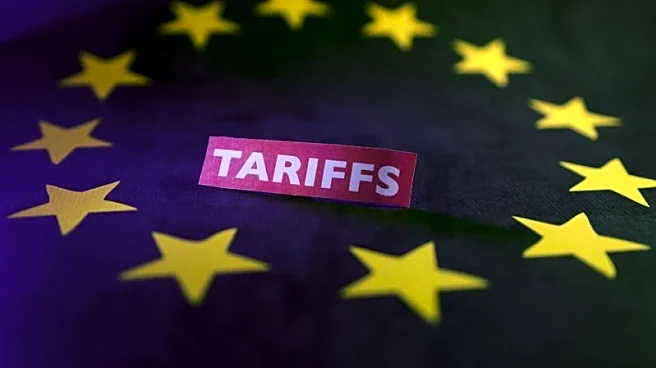BRUSSELS (Reuters) -The European Union is very unlikely to impose crippling tariffs on India or China, the main buyers of Russian oil, as U.S. President Donald Trump has urged the bloc to do, EU sources
said.
An EU delegation, including the EU's Russia sanctions chief, flew to Washington this week to discuss how the two sides can coordinate on sanctions against Russia over its full-scale invasion of Ukraine.
Officials said Trump urged the EU to hit India and China with up to 100% tariffs in order to put pressure on Russian President Vladimir Putin, who relies on energy revenues to fund his country's war in Ukraine.
The European Commission did not respond to a request for comment.
The European Union has imposed extensive sanctions on Russia and also listed two Chinese banks as well as a major Indian refinery in its last package in July.
However, the EU treats tariffs in a different way to sanctions and only imposes them after an investigation typically lasting months to establish a legally sound justification, the sources said.
The bloc has so far only imposed tariffs in the context of the Ukraine war on Russian and Belarusian fertilizers and farm products. The justification for the measures was to prevent creating a dependency that could be exploited and to avoid harm to EU fertiliser producers.
"So far, there is no discussion on possible tariffs neither on India...nor with China," an EU diplomat said.
Furthermore, the EU is in the midst of finalising a trade deal with India, which the bloc is unlikely to want to jeopardize.
Trump's position on India also appeared to ease by Wednesday, when he said he was looking to reset trade relations with New Delhi.
Another EU source said such tariffs were risky and could be too broad and it was easier to sanction specific entities and open the door to delist them if they ended their business with Russia.
Up to now, the EU had limited itself to listing small and unknown entities in third countries, which were often shell companies used to funnel military equipment or dual-use goods for use by Russia's military.
The EU is planning to list banks in two central Asian countries in its 19th package of sanctions as well as Chinese refineries, which could be proposed as soon as Friday.
(Reporting by Julia Payne and Philip Blenkinsop, editing by Ros Russell)










